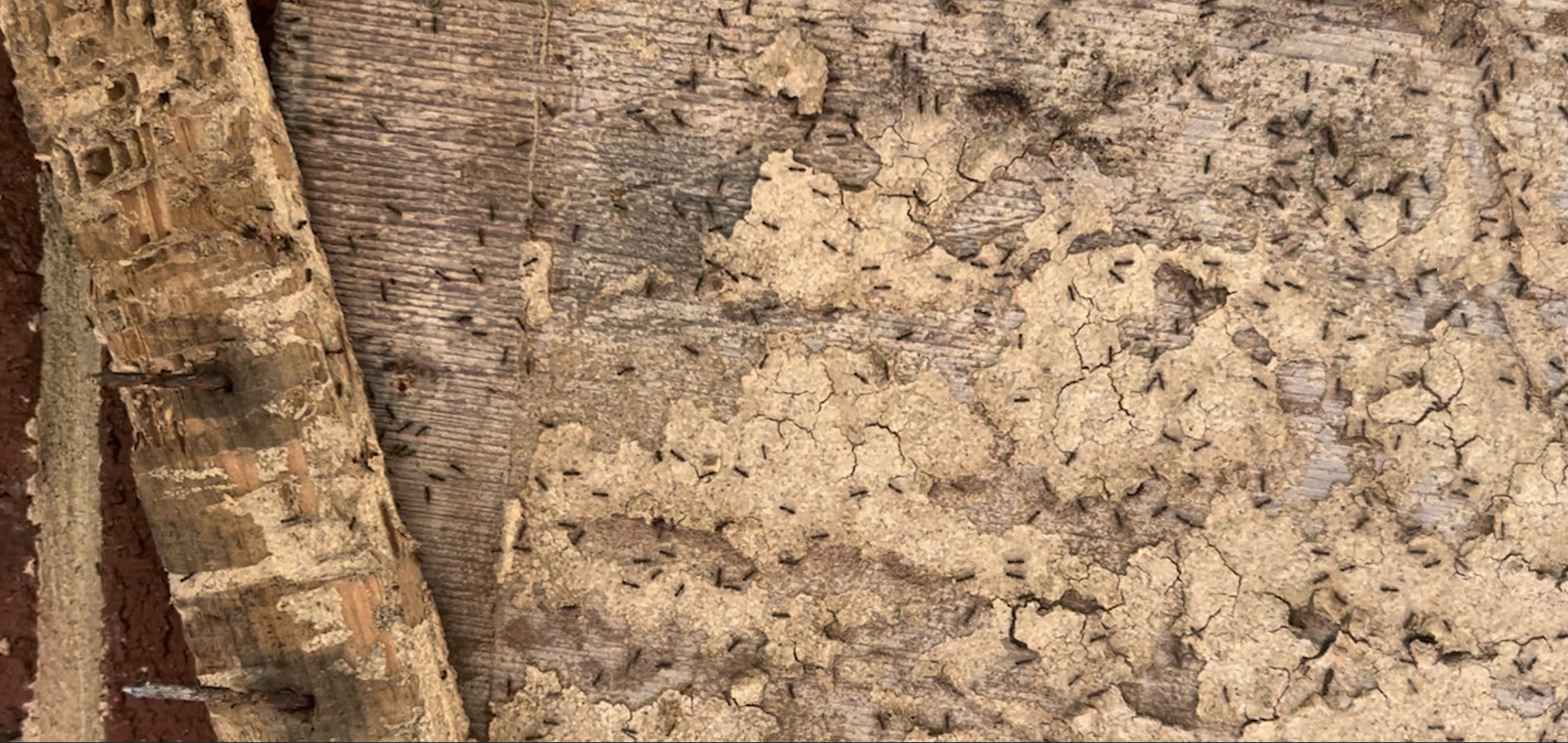
Carpenter Ants
Identifying carpenter ant infestations and protecting your home involves recognizing specific signs and taking preventive measures. Here's How:
Visible Ants: Seeing large, black or reddish ants (typically 1/4 to 1/2 inch long) inside your home, especially during the evening, is a sign of carpenter ants.
Sawdust Trails: Carpenter ants excavate wood to create their nests, leaving behind small piles of sawdust-like material known as frass. Look for these piles near wooden structures or objects.
Hollow-Sounding Wood: Tap on wooden structures. Carpenter ants hollow out wood, which may result in a hollow sound when tapped.
Rustling Noises: Listen for faint rustling noises inside walls or woodwork, especially at night when ants are most active.
Winged Ants: Finding winged carpenter ants (swarmers) inside your home is a strong indication of a nearby nest. These ants are often mistaken for termites but have a narrower waist and bent antennae.
Moisture-Damaged Wood: Carpenter ants prefer damp or decaying wood. Inspect areas with moisture damage, such as around windows, sinks, bathtubs, and basements.
Protecting Your Home Against Carpenter Ants
Eliminate Moisture: Fix leaks, ensure proper drainage, and use dehumidifiers in damp areas. Carpenter ants are attracted to moisture-damaged wood.
Seal Entry Points: Caulk cracks and crevices around your home’s foundation, windows, doors, and utility lines to prevent ants from entering.
Trim Vegetation: Keep tree branches, shrubs, and plants trimmed away from your home to eliminate bridges for ants to enter.
Remove Wood Debris: Store firewood, lumber, and other wood materials away from your home and off the ground. Remove tree stumps and dead wood from your yard.
Inspect and Repair: Regularly inspect your home’s wooden structures for signs of damage or infestation. Repair or replace any moisture-damaged wood promptly.
Use Ant Baits: Place carpenter ant baits near areas where ants are seen. These baits contain slow-acting poison that ants carry back to their nest, eventually killing the colony.
Professional Pest Control: If an infestation is severe or difficult
